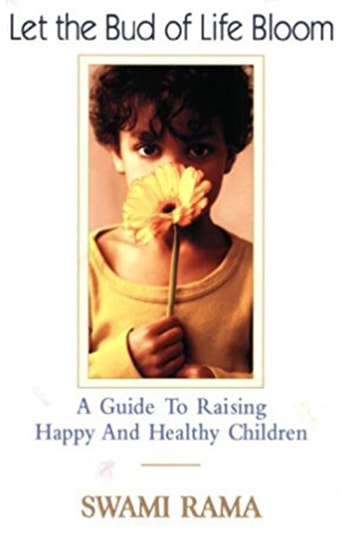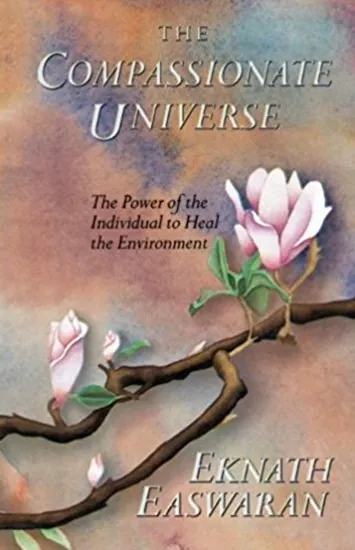-
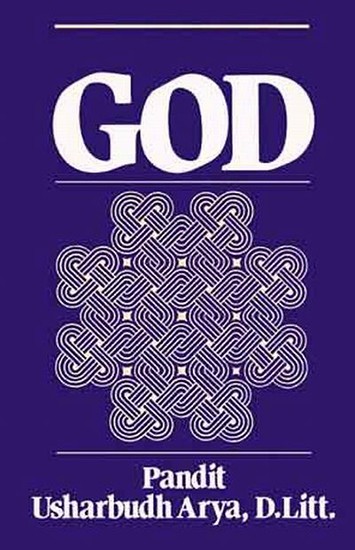 One cannot talk about God, Dr. Arya tells us; one can only be conscious of Him experientially. Everyone is looking for God: the alcoholic in his bottle, the child in his Superman comics, the artist in his work. The need to know God springs from our deepest nature. But most of us are not aware of this. And so, drawing upon his own rich background in the yoga-Vedanta tradition, the author tells us how this awareness can be developed in everyone (including atheists and agnostics).
One cannot talk about God, Dr. Arya tells us; one can only be conscious of Him experientially. Everyone is looking for God: the alcoholic in his bottle, the child in his Superman comics, the artist in his work. The need to know God springs from our deepest nature. But most of us are not aware of this. And so, drawing upon his own rich background in the yoga-Vedanta tradition, the author tells us how this awareness can be developed in everyone (including atheists and agnostics). -
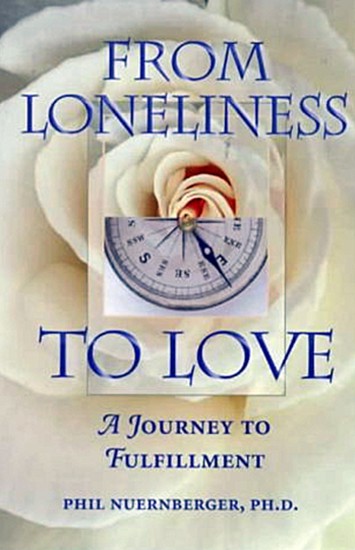 Phil Nuernberger's From Loneliness to Love picks up where his prior book "The Quest For Personal Power" ends. The author briefly restates his methods for achieving self-knowledge, self-mastery and self-fulfillment which the reader will find clearly explained in "The Quest." Phil's message is that loneliness is a spiritual problem, an illusion created by our ego. He prescribes prayer, meditation, and contemplation as the means to achieving the mystical experience of love.
Phil Nuernberger's From Loneliness to Love picks up where his prior book "The Quest For Personal Power" ends. The author briefly restates his methods for achieving self-knowledge, self-mastery and self-fulfillment which the reader will find clearly explained in "The Quest." Phil's message is that loneliness is a spiritual problem, an illusion created by our ego. He prescribes prayer, meditation, and contemplation as the means to achieving the mystical experience of love. -
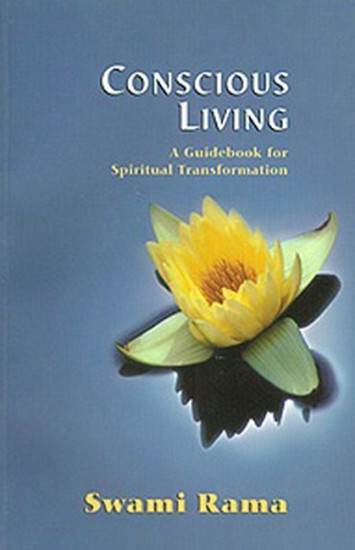 This is a practical book for people living in the world. The word "practical" implies that the teaching can be practiced in the world, in the midst of family, career and social obligations. No prior preparation is required for reading this book, and after reading this book, no further teaching is required. If one were to sincerely practice the teachings presented by Sri Swami Rama in this book, one will surely achieve the goal of self realization, a state described by Swamiji as the summum bonum of life, a state of bliss, a state of perfection.
This is a practical book for people living in the world. The word "practical" implies that the teaching can be practiced in the world, in the midst of family, career and social obligations. No prior preparation is required for reading this book, and after reading this book, no further teaching is required. If one were to sincerely practice the teachings presented by Sri Swami Rama in this book, one will surely achieve the goal of self realization, a state described by Swamiji as the summum bonum of life, a state of bliss, a state of perfection. -
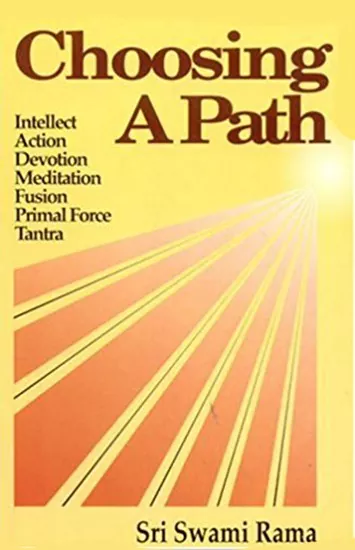 This book gives a glimpse and creates a provocative atmosphere for the intelligent and learned so that they will begin studying their inclination to follow a particular path, and so that they don't waste time and energy in the prevailing confusion of our times, but choose a definite path for themselves. The younger generation today is longing to seek something new and fresh, but it is torn by the conflicts created by guilt and fear. With these views in mind and to serve the needs of the aspirants and free-thinkers, I present this book.
This book gives a glimpse and creates a provocative atmosphere for the intelligent and learned so that they will begin studying their inclination to follow a particular path, and so that they don't waste time and energy in the prevailing confusion of our times, but choose a definite path for themselves. The younger generation today is longing to seek something new and fresh, but it is torn by the conflicts created by guilt and fear. With these views in mind and to serve the needs of the aspirants and free-thinkers, I present this book. -
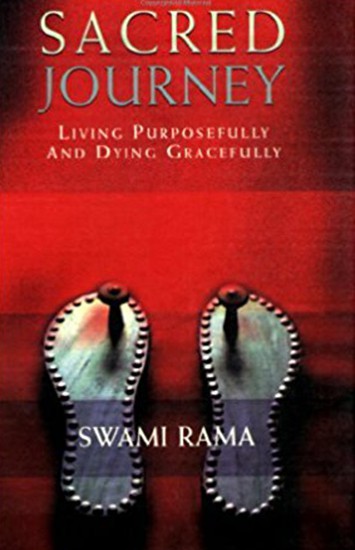 To understand death, a person must try to understand the purpose of life and the relationship between life and death. The two are partners, each providing a context for the other. Death is not a period, but merely a pause on a long journey. When life and death are accepted as having real meaning and purpose, and death is understood and accepted as part of the human journey, then the fear of death disappears and life can be lived fully. This book is about the relationship between life and death, and the 'how and why' of organizing one's life in a way that leads to expansion and growth, and that is helpful in preparing for the transition we call death.
To understand death, a person must try to understand the purpose of life and the relationship between life and death. The two are partners, each providing a context for the other. Death is not a period, but merely a pause on a long journey. When life and death are accepted as having real meaning and purpose, and death is understood and accepted as part of the human journey, then the fear of death disappears and life can be lived fully. This book is about the relationship between life and death, and the 'how and why' of organizing one's life in a way that leads to expansion and growth, and that is helpful in preparing for the transition we call death. -
Out of stock
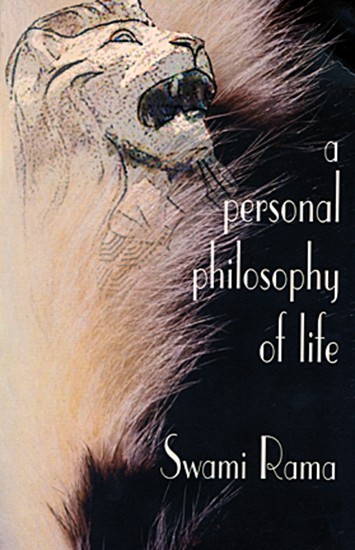 Swami Rama covers the entire philosophy of life in these lectures. It teaches the individual how to understand one word and that is called freedom—freedom from all bondages, from all ignorance. That state which is free from stress, strain, bondage and ignorance is called the state of enlightenment and that can be considered to be the state of perfection.
Swami Rama covers the entire philosophy of life in these lectures. It teaches the individual how to understand one word and that is called freedom—freedom from all bondages, from all ignorance. That state which is free from stress, strain, bondage and ignorance is called the state of enlightenment and that can be considered to be the state of perfection. -
 Among the oldest of India's spiritual texts, the Upanishads are records of intensive question-and-answer sessions given by illumined sages to their students. Widely featured in philosophy courses, the Upanishads have puzzled and inspired wisdom seekers from Yeats to Schopenhauer. Eknath Easwaran makes this challenging text more accessible by selecting the passages most relevant to readers seeking timeless truths today. His best-selling, accessible, highly readable translation and lively foreword place the teachings in a contemporary context for students and general readers alike.
Among the oldest of India's spiritual texts, the Upanishads are records of intensive question-and-answer sessions given by illumined sages to their students. Widely featured in philosophy courses, the Upanishads have puzzled and inspired wisdom seekers from Yeats to Schopenhauer. Eknath Easwaran makes this challenging text more accessible by selecting the passages most relevant to readers seeking timeless truths today. His best-selling, accessible, highly readable translation and lively foreword place the teachings in a contemporary context for students and general readers alike. -
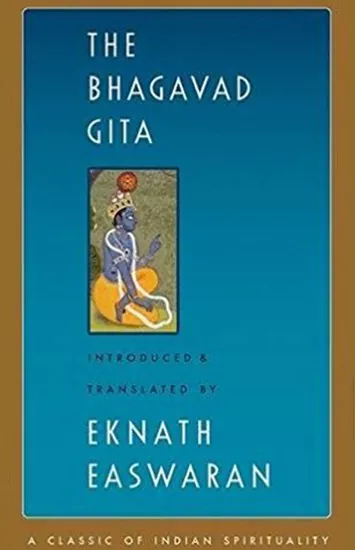 Vivid literature, lofty philosophy -- the Bhagavad Gita distills the finest in India's vast and varied culture On the morning of battle, facing Armageddon, prince Arjuna loses his nerve and refuses to fight. Krishna knows better: "Your very nature will drive you to fight. Your only choice is what to fight against." His advice gives an inspiring model of the man or woman of action -- the person who aims at goodness in a world of conflict and change. In this translation, the Gita stands out as a book of choices -- direct, practical, universal. The introduction sketches the background of the poem and gives clear, contemporary explanations of the basic ideas of Indian philosophy: karma, reincarnation, yoga, freedom. Separate chapter introductions outline the drama as it unfolds.In the Bhagavad Gita, Prince Arjuna asks direct, uncompromising questions of his spiritual guide on the eve of a great battle.In this best-selling and expanded edition of the most famous --and popular -- of Indian scriptures, Eknath Easwaran contextualizes the book culturally and historically and explains the key concepts of Hindu religious thought and the technical vocabulary of yoga. Chapter introductions, notes, and a glossary help readers understand the book's message. Most importantly, this translation uses simple, clear language to impart the poetry, universality, and timelessness of the Gita's teachings.
Vivid literature, lofty philosophy -- the Bhagavad Gita distills the finest in India's vast and varied culture On the morning of battle, facing Armageddon, prince Arjuna loses his nerve and refuses to fight. Krishna knows better: "Your very nature will drive you to fight. Your only choice is what to fight against." His advice gives an inspiring model of the man or woman of action -- the person who aims at goodness in a world of conflict and change. In this translation, the Gita stands out as a book of choices -- direct, practical, universal. The introduction sketches the background of the poem and gives clear, contemporary explanations of the basic ideas of Indian philosophy: karma, reincarnation, yoga, freedom. Separate chapter introductions outline the drama as it unfolds.In the Bhagavad Gita, Prince Arjuna asks direct, uncompromising questions of his spiritual guide on the eve of a great battle.In this best-selling and expanded edition of the most famous --and popular -- of Indian scriptures, Eknath Easwaran contextualizes the book culturally and historically and explains the key concepts of Hindu religious thought and the technical vocabulary of yoga. Chapter introductions, notes, and a glossary help readers understand the book's message. Most importantly, this translation uses simple, clear language to impart the poetry, universality, and timelessness of the Gita's teachings. -
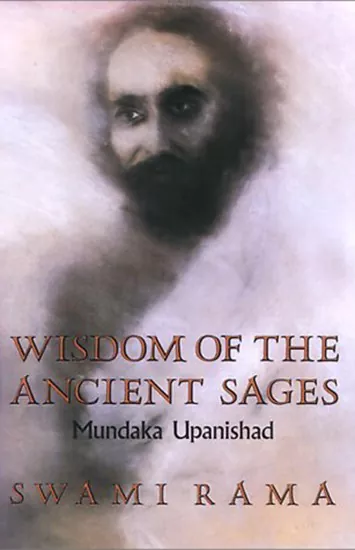 In Wisdom of the Ancient Sages, Swami Rama shares with the modern world the powerful and inspiring teachings of one of the worlds greatest spiritual texts: the Mundaka Upanishad. This beautiful translation and commentary affirms human nature as peaceful, creative, and transcendent. Its message will assist anyone who seeks to walk the path of personal andspiritual development.
In Wisdom of the Ancient Sages, Swami Rama shares with the modern world the powerful and inspiring teachings of one of the worlds greatest spiritual texts: the Mundaka Upanishad. This beautiful translation and commentary affirms human nature as peaceful, creative, and transcendent. Its message will assist anyone who seeks to walk the path of personal andspiritual development. -
 Based on the encounter between Yama, the King of Death, and Nachiketa, the seeker of death's meaning, this book examines the mystery and challenge of death. The story is taken from the Kathopanishad, one of the most important and ancient of all the scriptures. A philosophical understanding of the meaning and purpose of life and death is presented, along with a practical psychology for coping with life and for overcoming the fear of death.
Based on the encounter between Yama, the King of Death, and Nachiketa, the seeker of death's meaning, this book examines the mystery and challenge of death. The story is taken from the Kathopanishad, one of the most important and ancient of all the scriptures. A philosophical understanding of the meaning and purpose of life and death is presented, along with a practical psychology for coping with life and for overcoming the fear of death. -
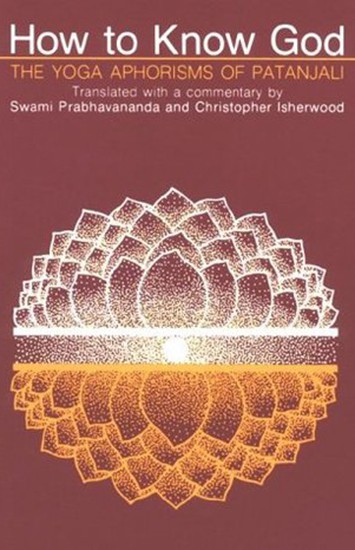 The Yoga Aphorisms of Patanjali is a major work on the practice of yoga and meditation. Through these ancient aphorisms you will learn how to control your mind and achieve inner peace and freedom. Although these methods were taught over 2,000 years ago, they are as alive and effective today as they have ever been.
The Yoga Aphorisms of Patanjali is a major work on the practice of yoga and meditation. Through these ancient aphorisms you will learn how to control your mind and achieve inner peace and freedom. Although these methods were taught over 2,000 years ago, they are as alive and effective today as they have ever been. -
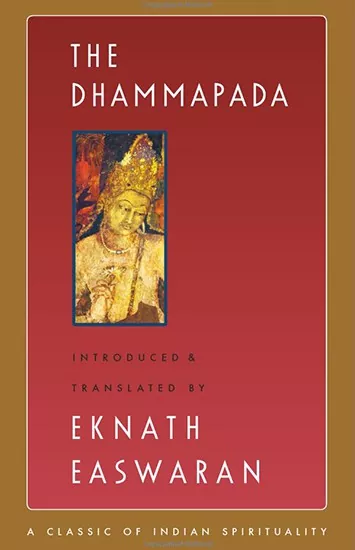 An English-language book originally published in 1986. It contains Easwaran's translation of the Dhammapada, a Buddhist scripture traditionally ascribed to the Buddha himself. The book also contains a substantial overall introduction of about 70 pages,[2] as well as introductory notes to each of the Dhammapada's 26 chapters.
An English-language book originally published in 1986. It contains Easwaran's translation of the Dhammapada, a Buddhist scripture traditionally ascribed to the Buddha himself. The book also contains a substantial overall introduction of about 70 pages,[2] as well as introductory notes to each of the Dhammapada's 26 chapters. -
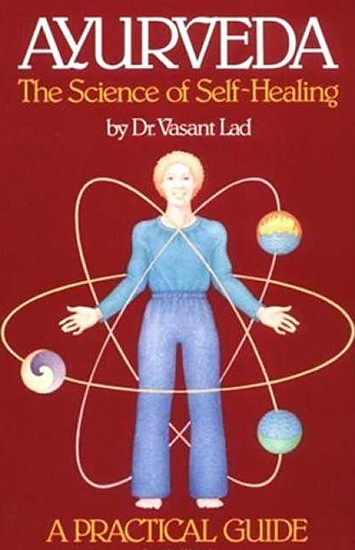 For the first time a book is available which clearly explains the principles and practical applications of Ayurveda, the oldest healing system in the world. This beautifully illustrated text thoroughly explains history & philosophy, basic principles, diagnostic techniques, treatment, diet, medicinal usage of kitchen herbs & spices, first aid, food aid, food antidotes and much more.
For the first time a book is available which clearly explains the principles and practical applications of Ayurveda, the oldest healing system in the world. This beautifully illustrated text thoroughly explains history & philosophy, basic principles, diagnostic techniques, treatment, diet, medicinal usage of kitchen herbs & spices, first aid, food aid, food antidotes and much more. -
Out of stock
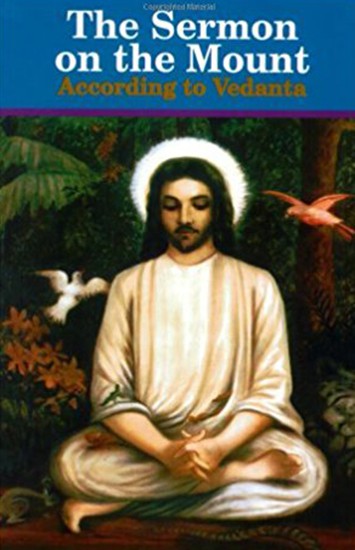 The Sermon on the Mount represents the essence of both Christ's teachings and the teachings of Vedanta. Christ said, Blessed are the pure in heart, for they shall see God. The kingdom of God is within. Be ye perfect.... Theologians are apt to explain away these teachings, but we believe Christ meant exactly what he said. Read in this book how Vedanta goes to the heart of Christ's teachings.
The Sermon on the Mount represents the essence of both Christ's teachings and the teachings of Vedanta. Christ said, Blessed are the pure in heart, for they shall see God. The kingdom of God is within. Be ye perfect.... Theologians are apt to explain away these teachings, but we believe Christ meant exactly what he said. Read in this book how Vedanta goes to the heart of Christ's teachings. -
Out of stock
 A newly revised an expanded version of a popular an unique work, this extraordinarily valuable introduction discussion of the philosophy of hath yoga is indispensable to any student of yoga. This clear and easy to follow exposition views hatha within the framework of raja yoga, the yoga of eight complements, as promulgated by Pantanjali, the author of Yoga Sutras, the most authoritative text on the science of yoga. Hatha should not be merely a system of physical exercise: this work emphasizes the paramount role that the mind plays in hatha yoga, and demonstrates how to elevate the practices of hatha to an inner spiritual experience. This study outlines how the practice of hatha yoga can serve as a means to understand the subtler essences of mind and prana and to prepare for meditation and the awakening of the kundalini force.
A newly revised an expanded version of a popular an unique work, this extraordinarily valuable introduction discussion of the philosophy of hath yoga is indispensable to any student of yoga. This clear and easy to follow exposition views hatha within the framework of raja yoga, the yoga of eight complements, as promulgated by Pantanjali, the author of Yoga Sutras, the most authoritative text on the science of yoga. Hatha should not be merely a system of physical exercise: this work emphasizes the paramount role that the mind plays in hatha yoga, and demonstrates how to elevate the practices of hatha to an inner spiritual experience. This study outlines how the practice of hatha yoga can serve as a means to understand the subtler essences of mind and prana and to prepare for meditation and the awakening of the kundalini force. -
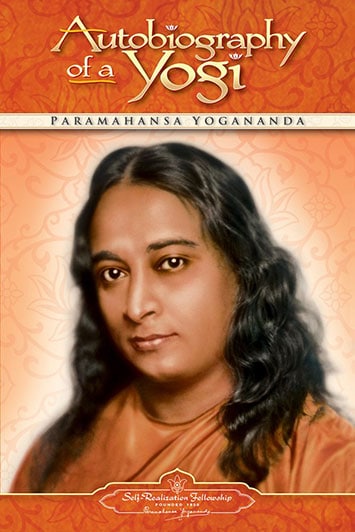 One of the world’s most acclaimed spiritual classics. As the life story of Paramahansa Yogananda- who is often referred to as the Father of Yoga in the West- the book has touched the hearts and minds of millions around the globe. Translated into many languages, it has served as an ambassador for India’s ancient science of yoga, introducing countless readers to the methods for attaining God-realization that are India’s unique and lasting contribution to the world civilization.
One of the world’s most acclaimed spiritual classics. As the life story of Paramahansa Yogananda- who is often referred to as the Father of Yoga in the West- the book has touched the hearts and minds of millions around the globe. Translated into many languages, it has served as an ambassador for India’s ancient science of yoga, introducing countless readers to the methods for attaining God-realization that are India’s unique and lasting contribution to the world civilization.

